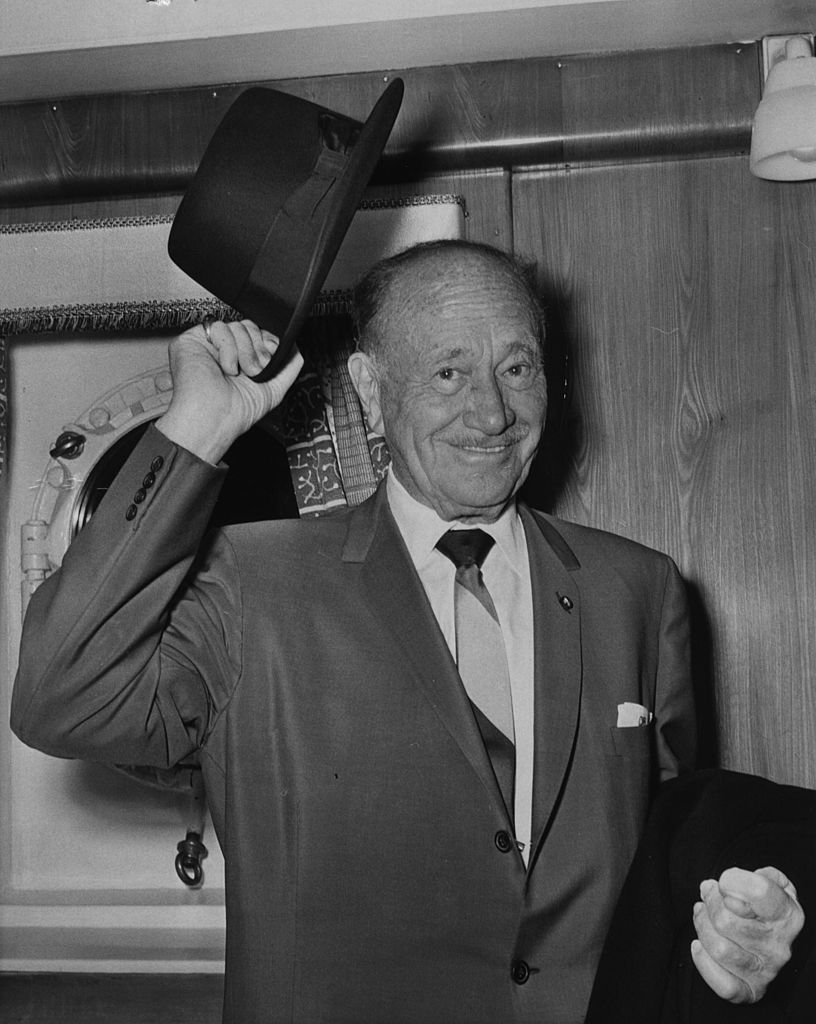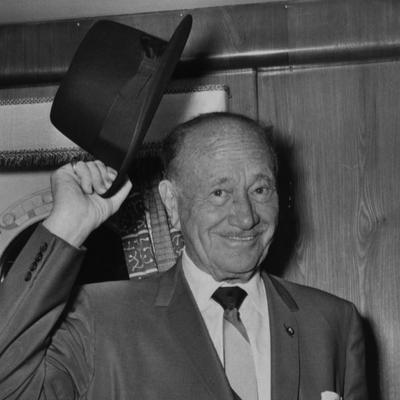Conrad Hilton at a Glance
- Categories: Business > Billionaires, Business
- Net Worth: $1 Billion
- Birthdate: Dec 25, 1887 - Jan 3, 1979 (91 years old)
- Birthplace: San Antonio
- Gender: Male
- Profession: Businessperson, Hotel manager, Investor
- Nationality: United States of America
Conrad Hilton: The Man Behind the Global Hotel Empire and His Billion-Dollar Legacy
Introduction: The Hilton Name and Its Founder
Conrad Hilton. The name itself evokes images of luxury, impeccable service, and iconic hotels around the globe. But who was the man behind this global empire? This article delves into the life, career, and enduring legacy of Conrad Hilton, exploring his humble beginnings, his relentless drive, and the impact he had on the hospitality industry. We’ll explore his impressive net worth at the time of his death, the foundations he built, and the generations of success that would come from his efforts.
Early Life and Entrepreneurial Beginnings
Born Conrad Nicholson Hilton on December 25, 1887, in San Antonio, New Mexico Territory, Conrad Hilton’s story begins far from the glitz and glamour of the hotels that would later bear his name. His parents, Mary Genevieve Laufersweiler and Augustus Halvorsen Hilton, instilled in him a strong work ethic and a deep sense of faith, qualities that would prove invaluable throughout his life. He attended Goss Military Academy, St. Michael’s College, and the New Mexico School of Mines before embarking on his career path. Hilton served in the U.S. Army during World War I and later represented New Mexico in the state legislature. His father’s untimely death in a car accident, while Conrad was in France after WWI, was a significant blow, but these early experiences shaped his character and laid the foundation for his future success.
The Rise of a Hotel Magnate: From Texas to the World
Conrad Hilton’s entrepreneurial journey began in his youth, assisting his father in their general store, which also included a small motel. This early exposure to business ignited his passion for hospitality. Initially drawn to banking, he moved to Texas during the oil boom of 1919, with the intention of purchasing a bank. However, when that venture fell through, fate intervened. Instead, he acquired the Mobley Hotel in Cisco, Texas – a 40-room property that would mark the beginning of his hotel empire. This hotel’s immediate popularity, with rooms turning over multiple times a day, revealed a high demand for lodging, and Hilton’s keen business sense saw an opportunity. He quickly expanded the hotel’s capacity and began acquiring and constructing hotels throughout Texas, including the Dallas Hilton, Abilene Hilton, Waco Hilton, and the El Paso Hilton. Hilton’s expansion extended to Albuquerque, New Mexico, where he built the Hotel Andaluz. The Great Depression posed a significant challenge, nearly bankrupting him, but Hilton’s resilience and management skills allowed him to retain control of his remaining hotels and even expand his ventures further. These experiences were vital in shaping his view of business.
Hilton Hotels Corporation: Building a Global Brand
In 1946, Conrad Hilton solidified his legacy by founding the Hilton Hotels Corporation. Two years later, he established the Hilton International Company, marking the beginning of his global expansion. This expansion coincided with the post-war boom in American tourism, creating a perfect storm for Hilton’s ambitions. The Hilton chain became a global leader, setting new standards for hotel quality and service. The 1954 acquisition of The Hotels Statler Company for $111 million (equivalent to $1.1 billion today) was a landmark deal, the largest real estate transaction in modern business history at the time. At the peak of his career, Hilton owned 188 hotels in 38 U.S. cities, as well as operating 54 hotels internationally. Notable properties included The Mayflower Hotel in Washington, D.C., the Palmer House in Chicago, and the iconic Plaza Hotel in New York City. This diversification and expansion, both domestic and international, truly cemented the Hilton brand as a dominant force in the industry.
Beyond Hotels: Conrad Hilton’s Other Business Ventures
While the Hilton Hotels were his most visible success, Conrad Hilton was a shrewd businessman with interests beyond hospitality. He demonstrated his acumen in other ventures. He acquired the Carte Blanche Credit Company, recognizing the growing importance of credit in the post-war economy. He also invested in the American Crystal Sugar Company, further diversifying his portfolio. These ventures demonstrate Hilton’s understanding of economic trends and his willingness to explore opportunities outside his core business. His diverse investments contributed significantly to his overall wealth and solidified his position as a multifaceted entrepreneur.
Personal Life and Family: Marriages, Children, and Relationships
Conrad Hilton’s personal life was as dynamic as his business ventures. He was married three times. His first marriage was to Mary Adelaide Barron, with whom he had three children: Conrad Hilton Jr., Barron Hilton, and Eric Hilton. Barron Hilton would later play a significant role in the family business and philanthropy. He then married the actress Zsa Zsa Gabor, with whom he had a daughter, Francesca Hilton. His final marriage was to Mary Frances Kelly, and they remained married until his death. The family’s interactions, particularly the relationships between his children and grandchildren, including Paris and Nicky Hilton (Barron’s granddaughters), would later become public through media attention. It is also notable that Hilton’s marriages and family relationships were often complex, and had far-reaching effects on the direction of the company.
Real Estate Holdings: Casa Encantada and Beyond
Conrad Hilton’s real estate investments extended beyond his hotel empire, with some properties becoming personal residences. In 1950, he purchased a mansion at 10644 Bellagio Road in Bel Air, Los Angeles, known as Casa Encantada. He lived there until his death. This six-acre estate would later be sold for a substantial sum. In 1980, financier David Murdock bought the house for $12.4 million, which is equivalent to $40 million in today’s dollars. In 2000, Murdock sold the house for $94 million ($140 million today). In October 2019, the home was quietly listed for sale for $225 million, with his grandson Rick Hilton, the founder of the Hilton & Hyland brokerage firm, as the listing agent. This property’s history showcases the high-value real estate that Hilton was involved in.
The Hilton Legacy: Philanthropy and the Future
Conrad Hilton’s legacy extends far beyond his business achievements. He was a generous philanthropist, establishing the Conrad N. Hilton Foundation in 1944. The foundation became the primary recipient of his personal fortune, with the mission to address global needs and promote the welfare of humanity. He left a significant portion of his estate to the foundation, with the goal of supporting charitable causes. His son Barron Hilton also pledged to donate the majority of his fortune to the Conrad N. Hilton Foundation, solidifying the family’s commitment to philanthropy, cutting out some family members from the inheritance. Today, the Conrad N. Hilton Foundation controls billions of dollars and has donated substantial amounts to various charities around the world, continuing Conrad Hilton’s vision of making a positive impact on society.
Hilton also left a significant amount to his immediate family, including his siblings, his daughter Francesca, and his nieces and nephews. But the real testament to the lasting impact of Conrad Hilton is evident in the continued success of the Hilton Hotels Corporation and the philanthropic work carried out by the Conrad N. Hilton Foundation.

Hulton Archive/Getty Images
Conclusion: The Lasting Impact of Conrad Hilton
Conrad Hilton was more than just a hotelier; he was a visionary entrepreneur who built a global empire through hard work, strategic thinking, and an unwavering commitment to excellence. From his humble beginnings in New Mexico to the establishment of a worldwide hotel chain, Hilton’s journey is a testament to the American dream. His legacy lives on through the Hilton Hotels Corporation, his family, and the Conrad N. Hilton Foundation, ensuring that his impact on the world continues to resonate for generations to come. His name will forever be synonymous with hospitality and luxury.

